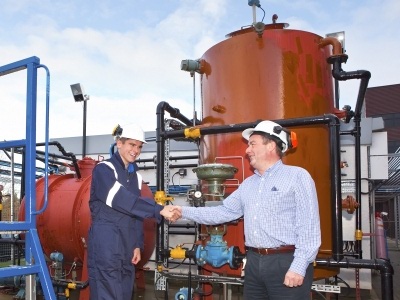Finding an oil field job in Alberta can be rewarding, as it offers opportunities in the energy sector. With Alberta being one of the leading provinces in oil and gas production, there are different avenues you can explore to secure employment in this industry. Here are some strategies to help you find an oil field job in Alberta:
- Research: Begin by researching the oil and gas companies operating in Alberta. Identify major players in the industry and smaller companies that may offer niche opportunities. Learn about their projects, locations, and hiring practices.
- Network: Networking is crucial in the oil and gas industry. Attend industry events, job fairs, and conferences where you can connect with professionals working in the field. Join online forums and LinkedIn groups related to oil and gas in Alberta to expand your network.
- Online Job Boards: Utilize online job boards such as Indeed, Glassdoor, and LinkedIn to search for oil field job openings in Alberta. Customize your search with keywords like “oil field,” “oil and gas,” “drilling,” etc., and filter by location to focus on opportunities in Alberta.
- Company Websites: Visit the websites of oil and gas companies directly to check for job postings. Many companies list job openings on their careers or recruitment pages. Set up job alerts to receive notifications when new positions become available.
- Recruitment Agencies: Consider registering with recruitment agencies specializing in oil and gas. These agencies often have access to job openings that may not be advertised publicly and can help match you with suitable positions based on your skills and experience.
- Trade Associations: Explore membership in trade associations such as the Petroleum Services Association of Canada (PSAC) or the Canadian Association of Oilwell Drilling Contractors (CAODC). These associations provide valuable resources, networking opportunities, and job listings for individuals seeking employment in the oil field.
- Training and Certification: Obtain relevant training and certification to enhance your qualifications for oil field jobs. Consider programs in drilling operations, safety training (e.g., H2S Alive), heavy equipment operation, and other industry-specific skills in demand.
- Flexibility: Open to entry-level positions or roles requiring you to start at a lower level and work your way up. Gain experience in the industry and demonstrate your commitment and willingness to learn and grow within the organization.
- Cold Calling and Speculative Applications: If you have identified specific companies you’d like to work for, consider contacting them directly with a well-crafted cover letter and resume. Please express your interest in working for their organization and highlight how your skills and experience align with their needs.
- Stay Informed: Keep abreast of developments in the oil and gas industry in Alberta, including market trends, regulatory changes, and new projects. Demonstrating knowledge and awareness of the industry can impress potential employers during interviews.
- Industry Events and Workshops: Attend industry-specific events, workshops, and seminars related to oil and gas in Alberta. These gatherings provide opportunities to learn about the latest trends, technologies, and job openings in the field. Additionally, they offer valuable networking opportunities to connect with industry professionals and potential employers.
- Utilize Social Media: Leverage the power of social media platforms like LinkedIn, Twitter, and Facebook to expand your professional network and stay updated on industry news and job openings. Follow relevant companies, join industry groups, and engage with industry influencers to enhance your visibility and credibility in the industry.
- Consider Remote Opportunities: Don’t limit your job search to just the major cities in Alberta. Many oil field jobs may be in remote areas or smaller towns near oil and gas production sites. Consider opportunities in these locations, as they may offer unique advantages such as higher salaries and opportunities for rapid advancement.
- Customize Your Application Materials: Tailor your resume, cover letter, and LinkedIn profile to highlight your relevant skills, experiences, and achievements specific to the oil and gas industry. Use industry-specific keywords and terminology to ensure your application materials resonate with hiring managers and applicant tracking systems (ATS).
- Follow-Up: After submitting your application for a job, don’t hesitate to follow up with the hiring manager or recruiter to express your continued interest in the position. A polite email or phone call can demonstrate your enthusiasm and proactive approach to the job opportunity.
- Continuous Learning: Stay proactive in professional development by seeking constant learning and skill enhancement opportunities. Consider enrolling in relevant courses, obtaining certifications, or participating in online training programs to stay current with industry standards and practices.
- Volunteer or Internship Opportunities: Consider volunteering or interning with organizations in the oil and gas industry to gain valuable hands-on experience and make meaningful connections. Even unpaid positions can provide helpful insights, networking opportunities, and potential pathways to paid employment in the future.
- Professional Associations: Join professional associations and organizations related to the oil and gas industry locally and nationally. These associations often offer resources, networking events, and job boards exclusively for their members, providing additional avenues for career advancement and job opportunities.
By incorporating these additional strategies into your job search efforts, you can increase your chances of finding a fulfilling and rewarding oil field job in Alberta. Remember to stay proactive, persistent, and adaptable, and don’t hesitate to seek support and guidance from career professionals or mentors.
